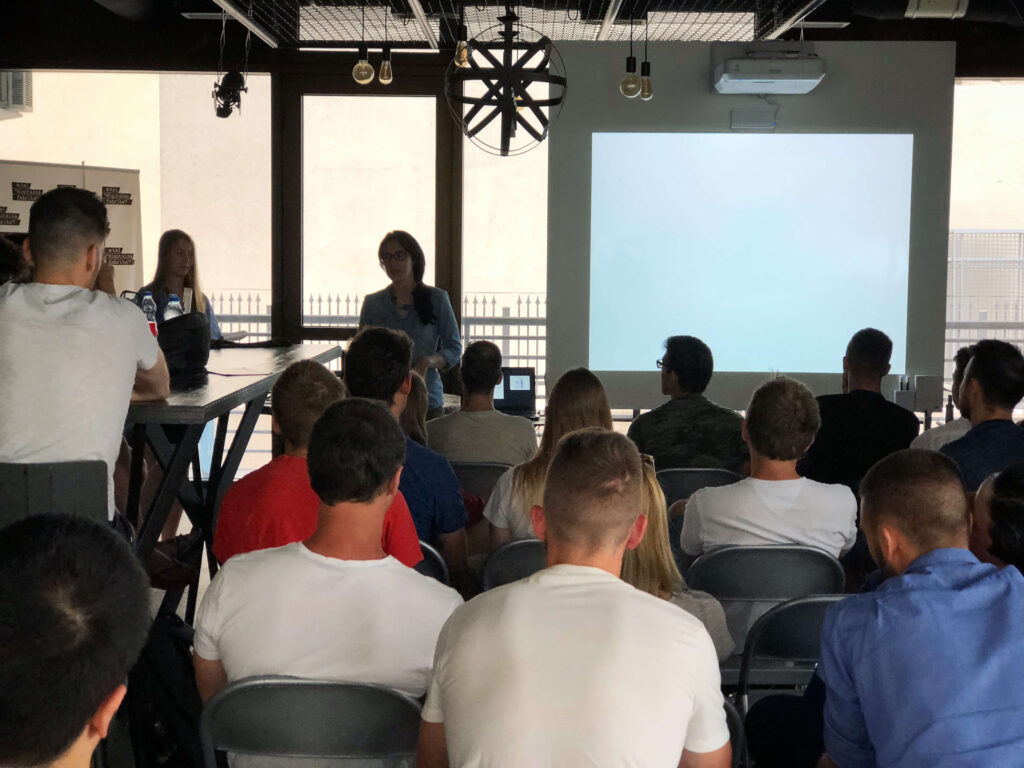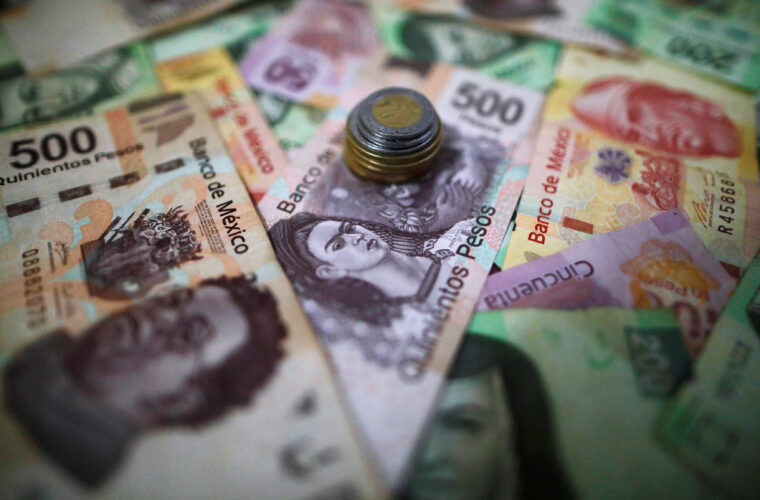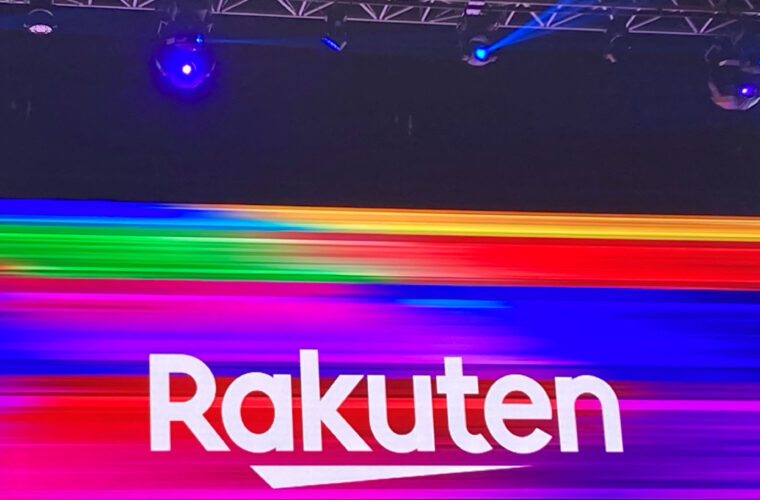Ana Nives Radovic, Founder and instructor at Fintech Online Center and co-founder of SUPER Hub, is listed among the Top 100 FinTech most influential researchers in the world by Onalytica.com, the world’s largest B2B Influencer Marketplace.
She started her career as a fine artist, got her first job in a bank in 2004, and started exploring monetary phenomena. In 2012, Ana Nives had her first contact with the story of bitcoin, and she was thrilled with the idea of blockchain that she completed a Master’s and a Ph.D. in this field.
Now, she is one of the top blockchain experts in the world, and she is constantly and continuously researching the legal aspects of blockchain technology, the NFT world, and smart contracts.
Ana Nives Radovic gave an interview to 4i-Mag discussing blockchain’s current challenges, the role of the FinTech Online Center and how users interact with blockchain technology, and to what extent they can understand it.
Your Ph.D. thesis is on blockchain and supply chain. How are these two combined, and how will they develop in the future?
Blockchain will soon be needed for the supply chain to function correctly like the Internet is necessary today in modern business to be more efficient. This is actually an area where blockchain can find applications much earlier than expected in other areas because there is no more convenient way to track data on the transportation of goods than what this technology can provide.
How many blockchain researchers are in the world who are taking this subject to an academic level? Do you think this area of expertise will be more available in academia?
When I chose this thesis in 2018, there were only a few people in the world studying this field academically, and there was practically no literature. That was the biggest challenge – to deal with something promising, explore a relatively unknown area, and be among the first to contribute in a certain way. Things have changed a lot – the first research papers have been released, and we already have a clearer picture of what could be done and how. I believe that a growing number of maritime faculties will soon cover this area as a particular course.
You have founded FinTech Online Center. What was your motivation for this online community, and how does it contribute to helping people better understand blockchain technology?
FinTech Online Center was initially designed to be a platform for providing online education. It was founded in 2019 when it seemed to me that as much as possible should be moved to the online sphere for practical reasons. The pandemic has made FinTech Online Center even more meaningful as interest in online courses has grown, and blockchain has been one of the most exciting areas. Initially, the courses “Legal Aspect of Blockchain in Logistics,” “Quantitative Analytics of Smart Contracts,” and “Legal Issues of Artificial Intelligence” were launched. Today there are 14 basic and, if necessary, tailor-made courses in the field of blockchain, cryptocurrency, NFT, and smart contracts, both from a mathematical and legal point of view.

Having researched Blockchain on an academic level, do you feel that the term and the idea of blockchain technology are misunderstood or misused today? Do you believe that the users are confused about Blockchain?
Although more than a decade has been spent searching for the most valuable ways to apply blockchain technology in many areas, this question is still relatively abstract because people are aware that it is a platform for cryptocurrency exchange and many things still seem incompatible. On the other hand, the Blockchain is somewhat abstract, and even those who understand its advantages in some spheres still envision it as some kind of software or application. Of course, as interest in its application grows, so does the number of doubts, and the fact that Blockchain is still unknown to many is not at all discouraging – the same was true of the Internet in the early 1990s. Some things become much easier to understand once they are more widely accepted, and we are at the very beginning of the blockchain timeline.
In our discussion, you mentioned crypto and fake news and that some people, including you, are trying to put the name right. Do you think people are listening to you? Do they understand your arguments?
Those who want to broaden their horizons and try to understand things most appropriately. I try to give as much explanation as possible because there are a lot of unknowns, and the media are very prone to misinterpreting this issue. The most important thing for me is to practice each form of blockchain education at an understandable level because only such education is useful.
You have discussed many times in the past the “single currency challenge,” and you have presented your ideas about how this could be beneficial for the whole world. What possibilities could blockchain technology provide for a vision like this?
Cryptocurrencies are just one way out of everything we’ll see in the fintech industry in the years ahead. Blockchain can eliminate many of the boundaries and gaps in many areas of information and resource sharing. Of course, traditional currencies, whether national or supranational such as the Euro, will exist as long as the governmental or international financial institutions create a framework. Still, the means of exchange and services will be improved because global trade simply requires it.
I know that you are participating in a group of people who are NFTs artists. How will galleries deal with royalties and regulations? Will galleries take a virtual form in the future? How will artists protect their rights and benefits?
More than a decade ago, I joined a group of artists who, through a joint initiative, sought to achieve royalties from selling art every time a painting or sculpture was resold, especially when a gallery resold to another gallery. It was one of the attempts to protect copyright in the way it’s regulated in other areas, for example, in the music industry. For now, NFTs and the copyright protection they provide are the best models to address this, although the legal aspect, in this case, needs to be transferred from digital to physical space. Galleries will always remain what they are, but in the mind of time, gallery owners will have to adjust to increasing awareness of the trend.
You have a great passion for art, so it is no surprise that Blockchain led you to the NFT world. Do you see prospects in the world of NFTs, or do you think it is a trend that will soon be lost?
NFTs and the technology behind them will find much broader applications than they have now – they will be used in every situation in which it will be necessary to confirm ownership of something. At present, this is just a tiny segment of NFT capabilities. For instance, you will soon be able to use NFT as a hotel booking, concert, or airline ticket. In the foreseeable future, other forms of ownership rights will be registered this way, e.g., on real estate and similar assets.
Since you like painting, how would you describe the painting of the future of Blockchain? What do you think will be in the “frame” in the next 10 or 20 years?
There’s very little that changes in terms of artistic expression, but part of us use technology as a tool. The influence of technology on art has always been present; in this sense, technology is a means, not an end. In that respect, nothing changes. The framework will remain the same as it has always been.

What are the key challenges of the application of blockchain technology in our modern world?
Blockchain, as we know it today, is just the beginning of something that will be developed and improved in the future. There are innumerable challenges, the most important of which is time. The sooner we start applying blockchain technology in all areas where it is necessary to keep databases or prove ownership, the better we will use its potential and, at the same time, be ready for future innovations.
You are also participating in the Fintechlopedia handbook. Could you tell us more about this project?
Fintechlopedia is my handbook created in 2020 when there was a need to introduce and treat individual fintech concepts as thematic units. Initially, it complemented FinTech Online Center’s courses, and the general public had the opportunity to familiarize themselves with some of its segments. From here on, as a proud member of the TeslaWatt team, I put a particular focus on crypto mining. In that sense, Fintechlopedia is complemented by Cryptominingpedia, which deals with mathematical and other mining-related issues.
Do people come to you for mentoring? Are they students or people who want to change careers?
Since I started the first educational program in 2013, I have been trying to provide mentorship to all students outside these programs who show interest in the field of blockchain technology. Within SUPER Hub, an organization with which I have been cooperating for years in education, I mentor startups and provide education in digitalization through much broader programs compared to student programs.
You are listed among the Top 100 FinTech global influencers. What is the most significant change you want to succeed as a FinTech influencer in this area? How do you feel about that?
As someone who was listed among the top 100 influencers in the FinTech world in 2021 as a researcher, I continue to focus on science and education. I set myself a long time ago the task of doing only what is helpful to a broader circle of people, and education is precisely like that. I conduct research in less studied fields in general education programs to attract as many people as possible who have not yet entered this world. My role in this whole thing is that we have to share knowledge because no one has any interest in keeping it for him.
What challenges are you facing in this new area and new area of the world economy?
If I were to talk about challenges now, it would sound like I am listing obstacles or complaining that what I am doing is difficult. However, I always avoid such an approach. My field of study is a vary challenging area where it is necessary to be careful when dealing with any information. So, there are many challenges at every step. Still, the biggest ones are behind us from the moment we seriously began considering blockchain technology’s application in many areas.



